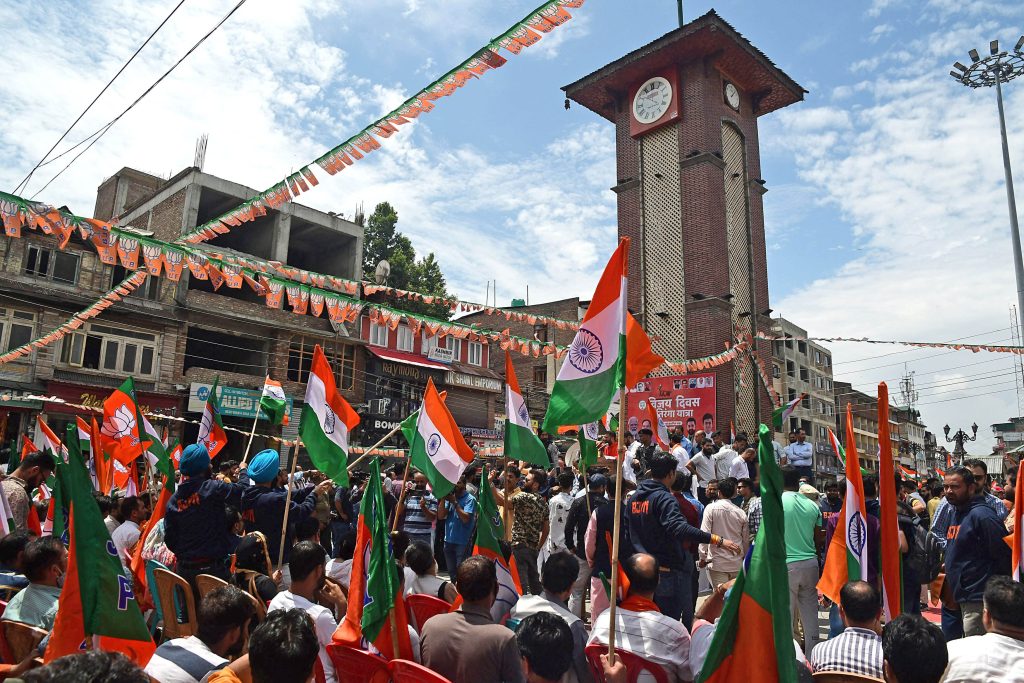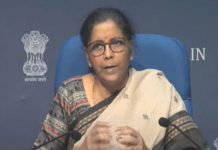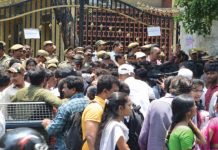J-K recently published its final electoral roll and registered a total of 86.93 lakh voters, marking the third revision following the completion of the delimitation exercise on May 5, 2022. However, the continuous delay in holding Assembly poll is causing anxiety among residents, reports Riyaz Wani

With the inauguration of Ram Mandir on January 22, the focus has shifted now to parliamentary elections being held probably in May-June 2024 in which the temple is expected to dominate the discourse. And it will be unlike the general election of 2019 when it was the Pulwama bombing that killed 40 CRPF jawans which set the narrative. The subsequent Balakot attack and the India-Pakistan skirmishes further swayed the public opinion in favour of the prime minister Narendra Modi.
Ram Mandir has currently done a similar kind of thing. There is a groundswell of support for the PM Modi and it could very well earn him a third term in power at the centre.
Kashmir could still be a major issue in the polls after the December verdict of the Supreme Court in favour of the abrogation of Article 370. This also goes to the favour of the BJP which counts the withdrawal of Article 370 as one of its biggest achievements. Also, with other achievements such as the passing of the laws like Citizenship Amendment Act 2019 (CAA), National Register of Citizens (NRC), Triple Talaq and others, the BJP has a major political advantage over the opposition.
In Jammu and Kashmir, the BJP’s victory is largely seen as a foregone conclusion. If anything, the people are looking forward to a third saffron term for the party and hoping it works out well for the union territory. The primary issue that is on the minds of people is the Assembly election which is expected to take place by September 2024 in accordance with the Supreme Court directions.
Jammu and Kashmir recently published its final electoral roll and registered a total of 86.93 lakh voters on January 01, 2024. The new count comprises 44.35 lakh male and 42.58 lakh female voters. The gender ratio has increased from 924 to 954. This marks the third revision of electoral rolls in Jammu and Kashmir, following the completion of the delimitation exercise on May 05, 2022.
“This should hopefully pave the way for the long-awaited Assembly elections,” said a political leader with the PDP, not wishing to identify himself adding that the Jammu and Kashmir by and large had now no representation of the people in the democratic institutions.
The absence of Rajya Sabha members, impending conclusion of the tenure of all 5 Lok Sabha representatives, abolition of the 36-member J&K Legislative Council in August 2019, and the prolonged 10-year gap before the upcoming elections for the 90-member J&K Legislative Assembly by September 2024, all contribute to absence of regional voices in democratic processes.
Moreover, the terms of the 4,100 Panchayats with 40,000 Panches and Sarpanches have expired, along with the conclusion of terms for all Block Development Councils (BDCs) and Urban Local Bodies (ULBs), including the prominent Srinagar Municipal Corporation and Jammu Municipal Corporation. The only exception lies with the 3rd tier of Panchayati Raj Institutions, the District Development Councils (DDCs), which have a remaining term of two years.
The question in 2024 revolves around whether elections will be conducted across these democratic institutions, with the exception of DDCs.
“The necessity for timely elections in J&K is critical to reinstating a functional and representative democracy in the region,” an editorial in a local daily read. “It is crucial to address the current void in various legislative bodies and local governance structures, ensuring that the people of the union territory regain their rightful representation in the democratic framework.”
For now, the people are looking forward to the upcoming parliament polls for an opportunity in the UT to exercise their democratic right. But the delay in Assembly elections prolongs the absence of a locally accountable government, which does impact the implementation of policies tailored to address the unique challenges faced by Jammu and Kashmir.”












